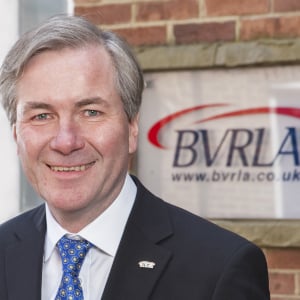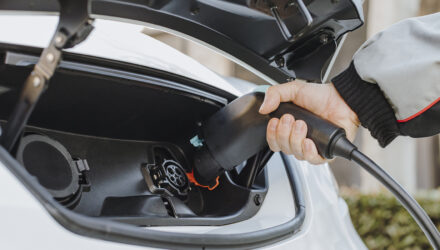
Transport Secretary Chris Grayling
The Transport Secretary has set out plans for the government to move towards completely ultra-low emission car fleets over the next decade.
Last year’s Road to Zero strategy set out a commitment to make all central government cars electric by 2030, electrifying at least 25% of the fleet by 2022.
The Government Car Service, managed by the Department for Transport, is well on track to meet the targets, with electric vehicles making up nearly 23% of the entire fleet.
Transport Secretary Chris Grayling has written to every government department to reinforce the pledge to move towards a completely electric government fleet by 2030.
Transport Secretary Chris Grayling, said: We want the UK to be the best place in the world to own an ultra-low emission vehicle, and as a government we have to lead by example.
I am pleased with the change we are making to the Government Car Service, but this now needs to be reflected in all fleets that are controlled by government.
Only yesterday, the Prime Minister made the bold commitment that the UKwill end its net contribution to climate change by 2050. It is absolutely vital that all parts of government play their part in delivering this ambitious target.
Every department has been given detailed guidance on how they can drive this transition in their own fleet, asking them to publish a yearly progress report.
The move is the latest step in the transition towards a greener-than-ever transport network and follows last week’s £25 million investment to develop ground-breaking zero emission technologies across the country.
It also builds on the government’s £1.5 billion Road to Zero strategy which outlines a series of ambitious steps to get more people into ultra-low emission vehicles. This includes infrastructure support, grants, and research and development, putting the UK at the forefront of the design and manufacture of zero-emission vehicles.
The government is also driving forward plans to reduce emissions, clean up our air, and deliver cleaner, greener transport across all modes.
These include a commitment to end the sale of new conventional diesel and petrol cars and vans by 2040, investment in hybrid trains, the doubling of investment in cycling and walking since 2010, along with the £2.5 billion Transforming Cities Fund which will develop innovative public transport schemes in some of England’s biggest cities.

BVRLA Chief Executive Gerry Keaney
BVRLA Chief Executive Gerry Keaney said: “We welcome the news that Transport Minister Chris Grayling has written to every other department urging them to play their part in delivering the government’s pledge to have a zero-emission car fleet by 2030.
“Unfortunately, this big gesture will have a relatively small impact. To make a real difference, we would like to see the government review its internal policies relating to the use of personal cars for business – known as grey fleet.
“The BVRLA Grey Fleet report published in 2016 estimated that the Civil Service grey fleet mileage was in the region of 265 million miles a year, costing £126m in mileage claims from civil servants doing business using their own vehicles.
“The average grey fleet car is around eight years old and emits 16% more CO2 than an average rental car, which is what Government staff should be using for their journeys in the absence of a practical public transport option.”


















